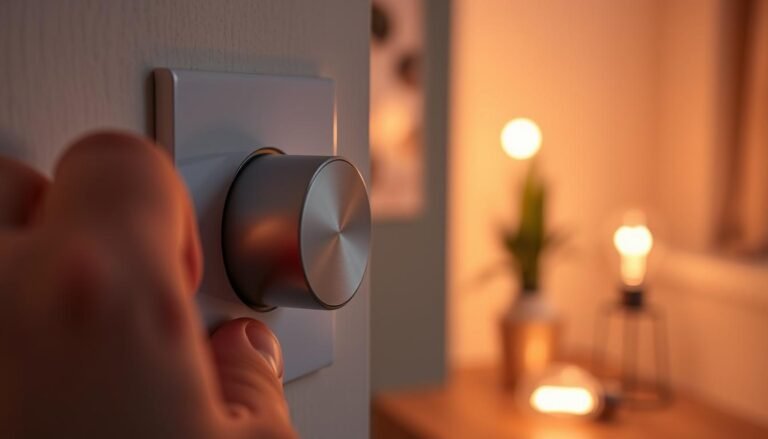Affiliate Disclosure: This post may contain affiliate links. If you make a purchase, we may earn a small commission at no extra cost to you.
When it comes to choosing the right light bulb, understanding the difference between lumens vs watts is essential. In the past, watts were used as a measure of brightness. However, with the introduction of energy-efficient bulbs, such as LEDs, lumens have become a more accurate indicator of light output.
So, what exactly is the difference between lumens vs watts? Watts measure the amount of power consumed by a bulb, while lumens measure the total amount of light emitted. In other words, lumens determine the brightness of a bulb, regardless of its wattage. This means that two bulbs with the same lumen rating will provide the same amount of light, regardless of their wattage.
By understanding the relationship between lumens vs watts, you can make informed choices when it comes to lighting your space. Higher lumens mean a brighter light, while lower wattage means less energy consumption. This is particularly important for energy-efficient options, as LED bulbs can provide a high level of brightness with fewer watts.
Key Takeaways:
- Lumens measure the brightness or light output of a bulb.
- Watts measure the amount of power consumed by a bulb.
- Comparing the lumens and wattage of different bulbs allows you to determine brightness and energy efficiency.
- Lumens are a more accurate indicator of light output, especially with the introduction of energy-efficient bulbs like LEDs.
- LED bulbs offer high lumens output with low wattage consumption, making them a more energy-efficient choice.
Lumens vs Watts or Brightness vs Electrical Power
Estimating the light output of a bulb based solely on its wattage is no longer accurate due to the introduction of various types of bulbs with different efficiencies. To help consumers compare light across different bulb types, manufacturers now include a lumens rating on the packaging. Lumens measure the amount of light emitted by a bulb, regardless of its wattage.
Higher lumens correspond to a brighter light, but lumens alone do not indicate the wattage needed. It is important to compare both lumens and wattage when choosing a bulb, as it will give you an idea of the brightness and energy consumption of each option.

LED bulbs have become popular due to their high lumens output and low wattage consumption, making them a more energy-efficient choice.
When estimating light output, comparing lumens and watts is key. While watts measure the amount of power consumed by a bulb, lumens measure the total amount of light emitted. This means that two bulbs with the same wattage can have different lumen ratings and therefore provide different levels of brightness.
By comparing the lumens and wattage of different bulbs, you can gauge the brightness and energy efficiency of each option.
Gauging Brightness of LED Lights
LED lights are known for their efficiency and bright illumination. When comparing LED bulbs, it is important to consider both their lumens and wattage.
LED bulbs typically have a higher lumen rating compared to traditional incandescent bulbs, meaning they emit more light for the same amount of power consumed. This makes LED bulbs a great choice for those looking for bright and energy-efficient lighting options.
The lumens to watts conversion can help you better understand the brightness potential of LED lights. While there is no direct formula for converting lumens to watts, you can use a lumens vs watts conversion chart provided by bulb manufacturers to find the equivalent wattage for a desired level of brightness.
This way, you can choose LED bulbs with the lumens and wattage that best suit your lighting needs.
| Bulb Type | Wattage | Lumens |
|---|---|---|
| Incandescent | 60W | 800lm |
| Compact Fluorescent (CFL) | 14W | 800lm |
| LED | 9W | 800lm |
As shown in the table above, LED bulbs require significantly less wattage to achieve the same level of brightness as incandescent and compact fluorescent bulbs.
This demonstrates the efficiency of LED technology, allowing you to enjoy a brighter light with fewer watts consumed. By understanding lumens and watts, you can make informed decisions when choosing LED lights for your home or office.
The Importance of Lumens in Light Bulbs
With advancements in lighting technology, understanding the difference between lumens vs watts is essential when choosing the right light bulbs for your home or office.
Energy-efficient bulbs, such as LEDs, can produce the same amount of lumens using lower wattages compared to traditional incandescent bulbs. This means that you can enjoy a brighter light while using fewer watts, leading to significant energy savings over time.
To make an informed decision when replacing bulbs, comparing lumens vs watts is crucial to ensure consistent brightness throughout your space.
Lumens per watt, also known as efficacy, is a helpful metric to consider when selecting light bulbs. It indicates how efficiently a bulb converts watts into light output. LED bulbs, in particular, boast high efficacy with low wattages, making them an excellent choice for energy efficiency.
By paying attention to lumens when purchasing light bulbs, you can have a more accurate measure of how bright the light will be in your space while optimizing energy consumption.
FAQ
What is the difference between lumens vs watts?
Lumens measure the amount of light emitted by a bulb, while watts measure the amount of power consumed by the bulb.
How do I determine the brightness of a bulb?
To determine brightness, you should compare the lumens rating of different bulbs. Higher lumens correspond to a brighter light.
What is the relationship between lumens vs watts?
Lumens and wattage are related in that higher lumen output can be achieved with lower wattages, especially with energy-efficient bulbs like LEDs. Comparing both lumens and wattage will give you an idea of brightness and energy efficiency.
How can I compare the brightness of different bulbs?
Comparing lumens is the most accurate way to gauge the brightness of different bulbs, as lumens indicate the amount of light emitted regardless of wattage.
Why should I pay attention to lumens when buying light bulbs?
Paying attention to lumens is crucial because it provides a more accurate indicator of how bright the light will be. Lumens per watt, also known as luminous efficacy, is a useful metric to understand a bulb’s brightness.
Check out our FREE Calculators on our Resources Page
Source Links
- http://www.ledified.com.au/the-difference-between-lumens-vs-watts-with-led-bulbs-2/
- https://www.any-lamp.com/lumen-to-watt
- https://www.lightbulbs.com/blog/led-lighting-the-difference-between-lumens-and-watts




